Chaltu doesn't know when her birthday is; she estimates that she is 20 years old. Unfortunately, Chaltu does know, all too well, the agony of obstetric fistula. Chaltu's story is far too common in remote Ethiopia: a lack of resources and information condemning women to suffer the preventable tragedy of fistula. At the time of her pregnancy, Chaltu did not know the importance of visiting a medical clinic. Without access to appropriate and vital medical attention, Chaltu suffered an agonizing fistula injury. After a year of pain and isolation, Chaltu was treated at Hamlin's Harar Fistula Hospital, where, with a full recovery, she feels reborn.
Born and raised in a remote rural village in the Oromiya region of Eastern Ethiopia, Chaltu had limited access to resources or social services growing up. Villagers would have to walk on foot for hours just to reach the closest government health clinic. As a result, most women in the village would experience childbirth at home without any skilled midwives or professional support. Chaltu's birth itself was fortuitous: her mother tragically suffered two stillbirths during unattended home deliveries.
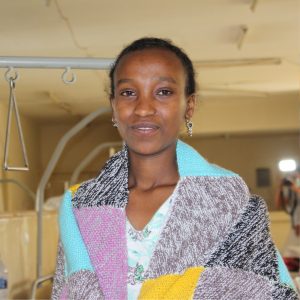
Like her four younger siblings, Chaltu was never able to attend school. Instead, she spent her childhood supporting her parents at home and working on their farmland. Around the age of 17, Chaltu was married. "I was enjoying married life because it is the life goal for most girls my age in the village. This joy however did not last long. The labor during my first pregnancy, a year after my wedding, ruined my life," recalls Chaltu.
The anguish of obstructed labour and fistula
Chaltu's fistula injury was a preventable tragedy. During the nine months of her pregnancy, Chaltu did not visit a health facility. This was the result of widespread misconceptions in her community about the safety of visiting health centers. "In my village there is a fear, an incorrect belief, that you should not visit a clinic or any other health facility, whatever the health problem is. In particular, pregnant women fear that health professionals could [during an antenatal check-ups] touch the womb with a sharp instrument and endanger the fetus, as well as the mother. That's why I never visited a clinic during the entire pregnancy; which I regret now after learning our fear was rootless," Chaltu reflects.
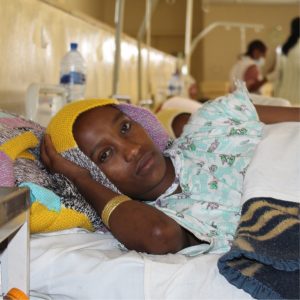
After two days of labor, Chaltu was carried to the closest government hospital. There, a day later, she delivered a stillborn baby. Chaltu recalls the trauma: "I woke up, looked around and asked my mom where my baby was. I felt deep grief by the loss. Knowing I was now incontinent worsened the grief; I wished my own death."
Chaltu suffered the fistula injury after an obstructed labor which lasted for three painful days. She needlessly suffered with fistula for a year - lonely, depressed and isolated from her community; although to her, it felt like ten years. The pain and indignity of fistula was unbearable for Chaltu. "It was probably the hardest time of my life. My father and mom - the whole family - were worried about me all the time. I didn't think of a cure. I was just waiting for my death " she remembers.
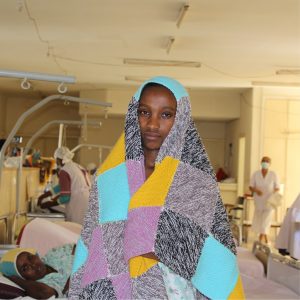
Getting her life back
The government hospital advised Chaltu to visit Hamlin's Harar Fistula Hospital after three months of recovery. Her plans were dashed by a national COVID-19 lockdown and regional unrest. In October, 2020, Chaltu finally arrived at Hamlin's Harar Fistula Hospital. Her father had accompanied her to the hospital and was warmly welcomed alongside her daughter by the hospital staff and patients. Confident that Chaltu, like the other patients, would be lovingly cared for and provided with best-practice treatment by the Hamlin staff.
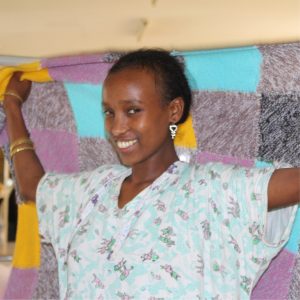
After three weeks of pre-operative rehabilitation Chaltu underwent fistula repair surgery. Her surgery was a success and she is now completely dry. Chaltu also received counseling as part of the Hamlin Model of Care. "Look at me now, I am extraordinarily dry. What surprised me most during my stay at this hospital was the motherly and holistic care I received - even during this hard time with the pandemic, all the services that probably would cost a lot of money are free of charge. I can't thank you enough for your unconditional love and care. You may think this is just a job, but for me and those poor women like me, it is like a rebirth. Thank you for giving back my life again," Chaltu told the staff at Hamlin's Harar Fistula Hospital.
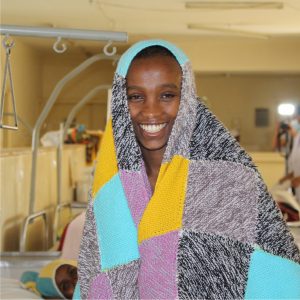
A preventable tragedy
Dr Catherine Hamlin believed that the key to eradicating fistula lay in prevention. That's why she established the Hamlin College of Midwives in 2007. To date, 190 Hamlin Midwives have graduated with Bachelor of Science (Midwifery). Graduates from the Hamlin College of Midwives are deployed for a minimum of two years to a Hamlin-supported midwifery clinic near their hometown. Thanks to the expertise of Hamlin Midwives, hundreds of thousands of women have successfully delivered healthy babies and avoided the trauma of fistula.
The success of Hamlin Midwives is not only a result of their high-quality training and practical experience, but also because they are able to appropriately and accurately convey information to their communities. Local knowledge and the ability to speak the local language equips Hamlin Midwives with the cultural sensitivity needed to dispel misconceptions about seeking medical help on a variety of issues that affect women's health.
No woman should suffer from the preventable tragedy of fistula. Your support can help fistula patients rebuild their lives; click here to help eradicate fistula. Forever.